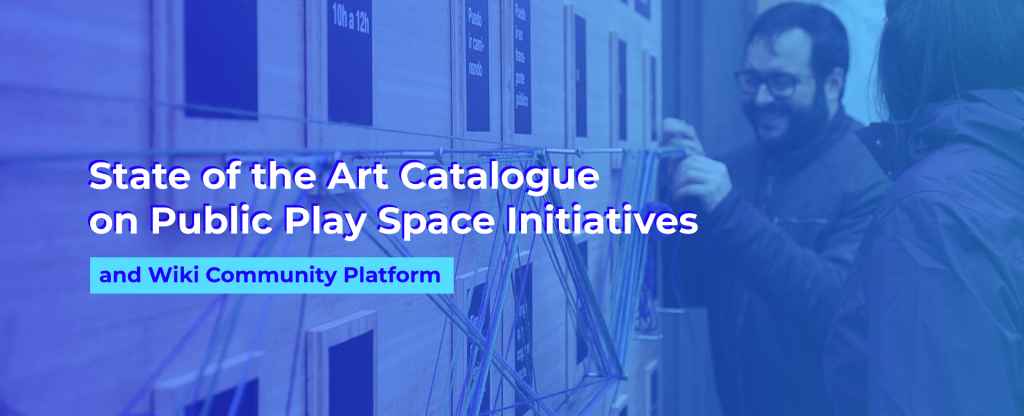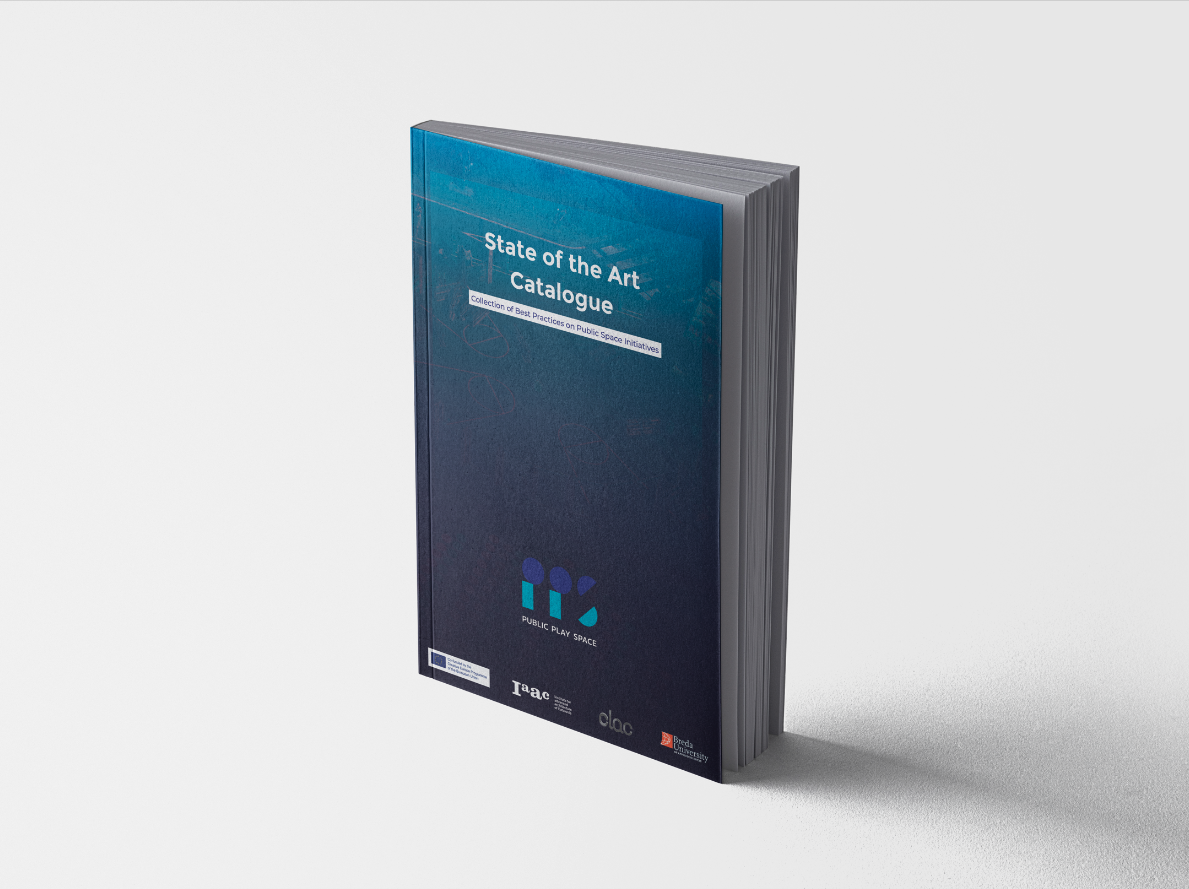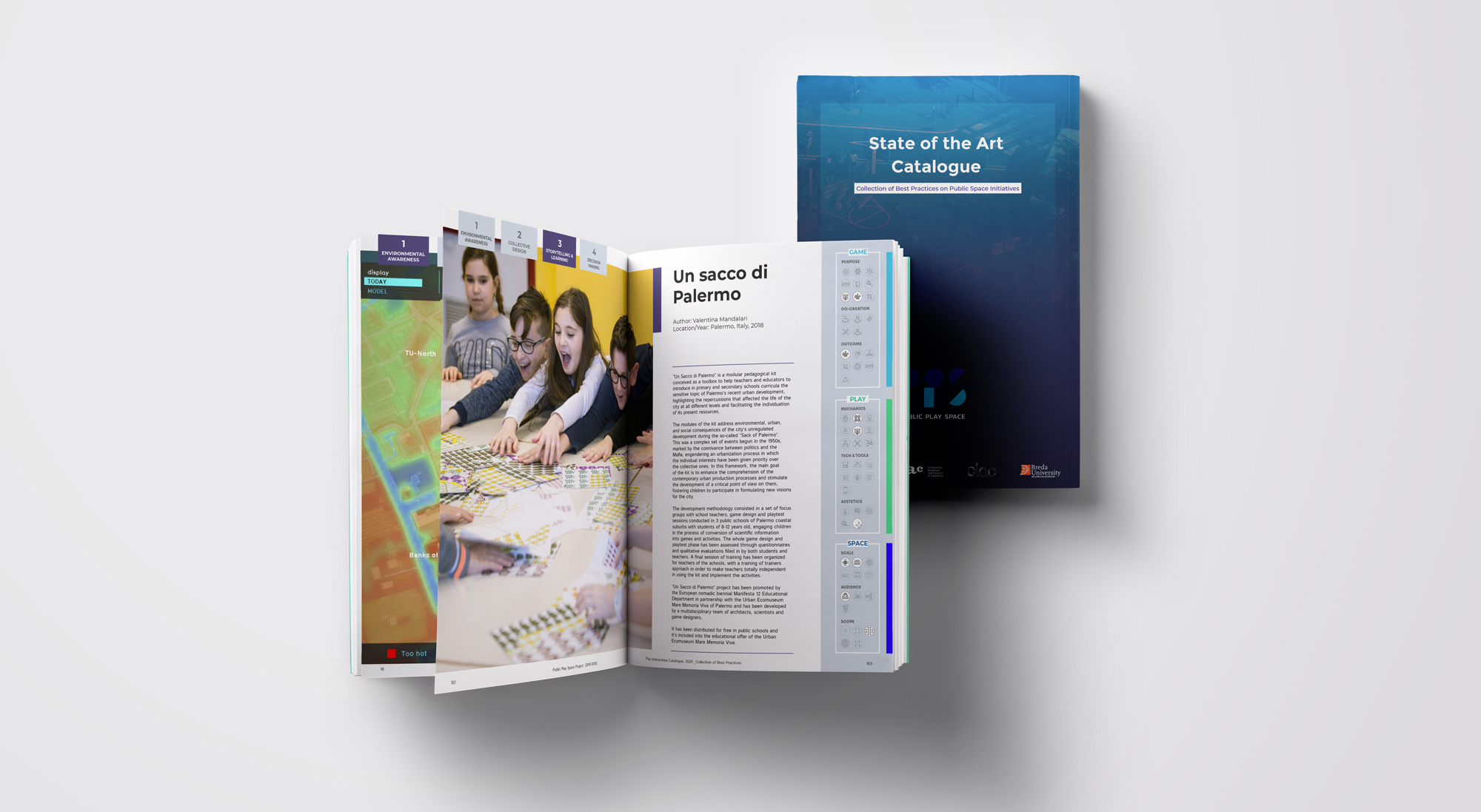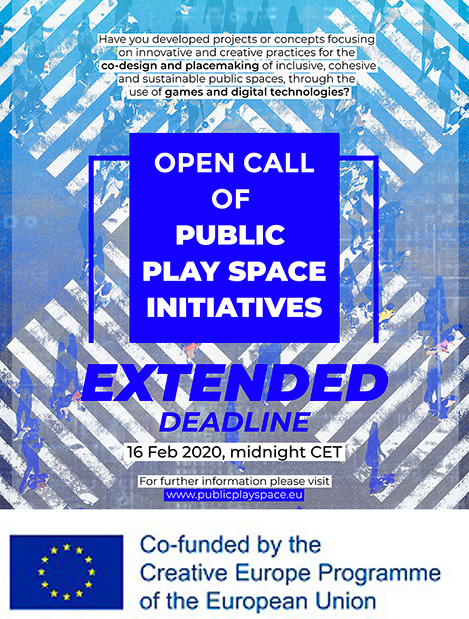
STATE OF THE ART CATALOGUE
The State of the Art Catalogue collects and analyses 30 best-practice case studies, offering a clear panorama of the emerging methodologies and strategies for the public space co-design through games and digital technologies. The Catalogue projects selected from the the results of an Open Call launched in December 2019 and from a competitive desk review selection developed by the PPS project partners.

PPS WIKI COMMUNITY PLATFORM
With the objective of increasing the audience of the research, sharing the results with a wider public and engaging more experts in the process of collection of best practices, case studies, the PPS project launched the Public Play Space Community Platform, an open source online wiki platform, open to the contribution of more researchers, towards the development of a deeper knowledge on emerging methodologies and experiences innovative technologies and games for public space co-design.
WINNERS ANNOUNCEMENT

We are very pleased to announce the selected best two projects of the Open Call of Public Play Space Initiatives.
The winners are:
- Redesire
by Rolf van Boxmeer and Tessa Peters (Rezone) - Virtual Environments as a Technological Interface between Cultural Heritage and the Sustainable Development of the City
by Georgios Artopoulos.
The winners are invited to showcase their project in the upcoming Public Play Space Symposium that is planned to be held in September 2021
Comments by jury members:
Redesire
“The project successfully tackles the main existing issues of a specific phase of the participatory design process: the confrontation between different stakeholders for the recognition of synergies between individual interests and objectives. The mechanics of the game are carefully studied to merge digital and in-person interaction. A key value of the project is the possibility to be replicated in different contexts, offering a useful resource for designers, planners, policy makers and citizens.”
IAAC
“Redesire combines the best of both the digital and human capabilities. By leaving the process up to technology but the interpretation to human intellect, this game with creative, playful features allows players to discuss, imagine and conceptualize new features for the public space. For a game that is all about dialogue and showing different perspectives on the same area, this proven concept qualified itself to earn a spot on the winners’ list”
BUAS
“Redesire is a game about comparing different points of view and is a way to avoid misunderstandings and to generate a common point of view. It also qualifies and quantifies the values of the individual participants. In many ways the game is a metaphor for living in the city. So play is very appropriate as an element of a placemaking process because it tends to build a common consciousness over an area.”
CLAC
Virtual Environments as a Technological Interface between Cultural Heritage and the Sustainable Development of the City
“The project fully takes advantage of the opportunities offered by the use of an advanced interactive technology as VR, not only as a tool to engage the users, but also as a means for collecting data to inform the co-design process.
The tool seems extremely flexible to be applied in other and different contexts, offering a useful resource for designers, planners, policy makers, and citizens.”
IAAC
“If you think about games for participatory placemaking through advanced technology, you might as well envision this game. Virtual Environments as a Technological Interface between Cultural Heritage and the Sustainable Development of the City allows you to explore future spaces through VR while walking through the still to be developed area. With VR technologies incorporated in nearly every modern mobile phone, is a grand promise for what the future of placemaking could look like. Suppose you manage to build a platform that can incorporate 3D models, running on the standard software from architects and can translate that to VR technology on mobile phones, there is a bright future for this game. Both in architecture as in placemaking.”
BUAS
“This experience uses a virtual reality generator with a feedback management system. In this way, players are provided with a series of scenarios to give feedback on. This game uses the most advanced technologies to help people choose between different options in building cultural and public spaces. “
CLAC
OPEN CALL ON PUBLIC PLAY SPACE INITIATIVES
The call, launched at the end of 2019, invited practitioners and researchers to submit their projects in the field of co-design and placemaking.
Are you interested in placemaking, participatory co-design and digital technologies? Last days to submit your project!
Public Play Space (PPS), a project co-funded by the Creative Europe programme of the European Union and developed by IAAC, BUAS, and CLAC, is extending the deadline for the Call for projects and concepts focusing on innovative and creative practices for placemaking and the co-design of inclusive, cohesive and sustainable public spaces and cities, through the use of games and digital technologies.
Click here to open the call description
Click here to apply!
Extended Deadline: 16 February 2020, midnight CET
Results will be announced on this website. Stay tuned!
BACKGROUND: ABOUT THE CALL FOR BEST PRACTICES OF PUBLIC PLAY SPACE
The development of information and communication technologies has opened new frontiers in the use of games within participatory processes and during the last decade several new experimentations of video games usage for participatory planning have been developed.
This Call is an opportunity to present your project at the European scale! We are looking for best practices (either developed and applied projects or at concept stage) in the field of games targeted at facilitating participatory processes.
The objective is to illustrate and inspire a global discussion around how digital technologies, in combination with gamification strategies, can be used to co-design public space and inform placemaking.
ASSESSMENT CRITERIA AND PROJECTS ELIGIBILITY
We aim to collect innovative and creative practices in the field of co-design. The case studies must be successful projects or concepts that cover at least two of the following criteria:
- Placemaking: understood as a collaborative process by which the public realm can be shaped;
- Gaming mechanisms: considering games as a means of facilitating participatory processes;
- Digital or non-digital tools: use of technologies that are employed to boost decision making and participation;
- Communal decision-making: topics involving civic participation strategies;
These case studies may showcase any project or concept developed in the European territory and can be submitted by either the author, co-author, or contributor.
OPPORTUNITIES FOR AWARDEES
- Presentation at Symposium: The best two practices will be invited to be showcased at the forthcoming Symposium on Public Play Space that will be held in Barcelona in mid 2021. The two winners will receive a travel and subsistence allowance.
- Publication: Selected entries will be published online (with ISBN) in the Public Play Space State of the Art Catalogue and book.

